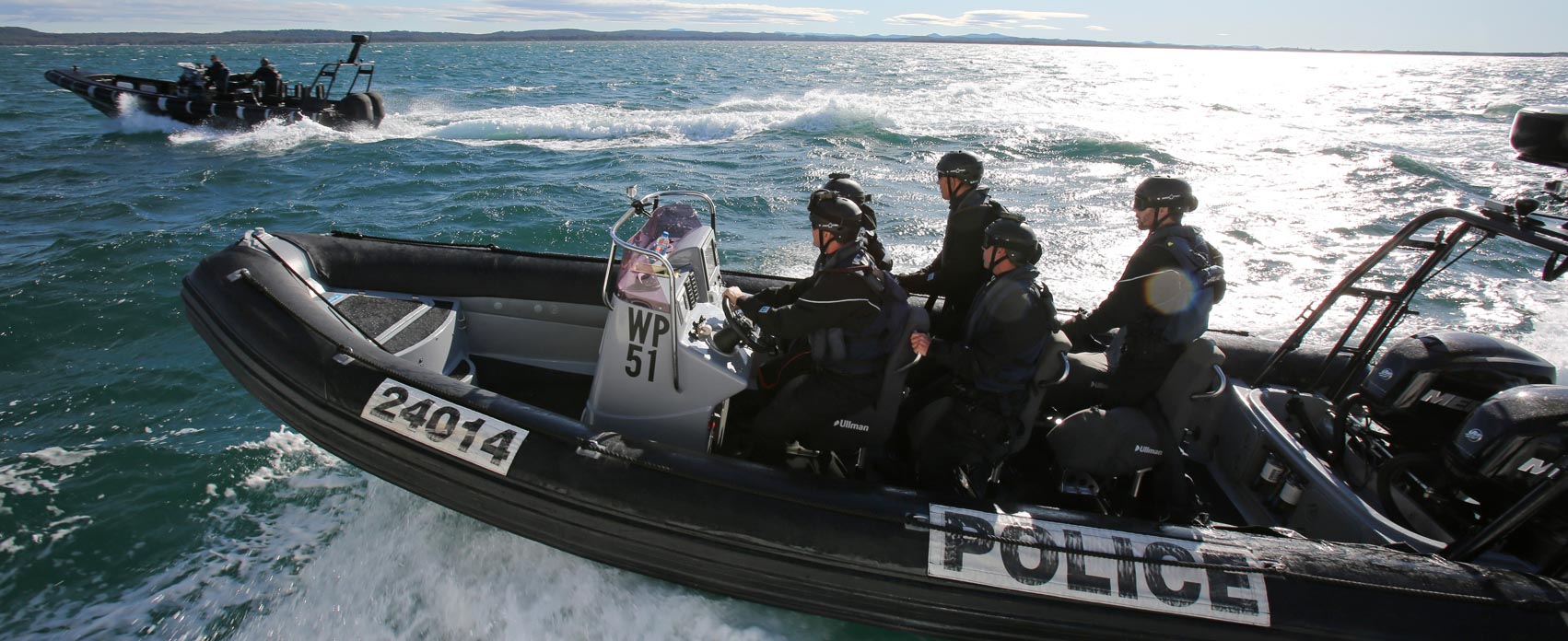December 2012
19 December 2012
The following information relates to a story aired on Channel Nine News on 18 December 2012.
In response to Channel Nine's story (18/12/12) on transporting prisoners by NSW Police Force.
NSW Police Force has traditionally transported all prisoners. The NSWPF is still required to transport some juvenile offenders and adult female offenders.
Where the travelling distance is 250km or further, one-way, prisoners are transported by air mostly by propeller aircraft (in the last 6 months 12 out of 83 flights were by jet). Transporting prisoners by air has been carried out by NSW Police for decades. It improves;
* Community safety, by reducing the time escorting police are out of their commands
* The safety of transporting officers and prisoners
* The speed of the transportation process
* Efficiency
* Effectiveness
A jet has the added benefit of having a significantly higher level of safety, speed and flexibility. It is able to fly through storms or at higher altitudes and for longer to avoid bad weather which may ground propeller craft. In some instances, a jet is the only aircraft available.
Transporting prisoners by air costs the NSWPF about $800 000 per year.
August 2012
21 August 2012
The following information relates to a story aired on Channel Nine News on 21 August 2012
You may have seen a report on a 2010 decision by NSW Police to reject a user-pays request from the Kings Cross Licensing Accord. For the record, the truth of the situation is:
"NSW Police Force gave due consideration to a lengthy application for user pays police at Kings Cross. During the process, there was extensive and regular consultation between the Kings Cross Licensing Accord and senior NSW Police.
"The decision to reject the application was made because it was restrictive, only applying to "stakeholders in this proposal" and limiting the ability of police to respond to crime outside those venues.
"The Cost Recovery and User Charges policy also says that these services should not involve static guard duty; moreover, the supplementary provisions of the policy clearly state that the Force "does not enter into a supplementary policing arrangement for the sole benefit of licensed premises, registered clubs or the casino".
"And the application presented a serious conflict of interest for police, particular in terms of our ability to impartially enforce the provision of the Liquor Act.
"20-30 additional officers are already rostered on duty in Kings Cross on Friday and Saturday nights. That number is increased further in summer."
July 2012
9 July 2012
Police cautions in road matters
The following information relates to a story aired on Channel Seven News on 9 July 2012
- There is no systemic issue with failed prosecutions in traffic matters due to police not providing cautions
- No recurring issues have arisen from Failed Prosecutions Review Committees
- Cautions are NOT required in many traffic related cases - covered by various pieces of legislation
- Every driver is required to state his or her name, home address, and the name and address of the owner of the vehicle
- If the vehicle is involved in a collision, the driver is required to provide the police officer with an explanation of the circumstances of the crash'
- The person responsible for the vehicle (eg registered operator or custodian) is also required to provide police with the name and address of the person who was driving it if it is alleged that the vehicle was involved in an offence under Road Transport legislation. Thus if the registered operator was the driver at the relevant time, he or she is obliged to admit that fact
- Prosecutors rely on the evidence the officer gives of his or her observations and in most cases NOT the offender's admissions to the police officer - therefore absence of a caution is rarely relevant
April 2012
26th April 2012
NSW Police Force response to claims on ABC TV 7.30 Program regarding civil action over software copyright.
This matter is a contract dispute between two parties which is currently the subject of civil action.
NSW Police firmly maintains that it paid for a site licence which entitled all police users to use that software. Site licences are not uncommon.
Furthermore, this site license expressly permitted NSWPF to use the software after the expiry of the maintenance contract in 2003.
In relation to other aspects of the claim, NSW Police has made reasonable offers to settle but these offers have been rejected.
The company also declined NSWPF offers for mediation before starting proceedings.
The NSWPF also strongly rejects suggestions it involved lawyers in discussions with the company without consultation. The company had every opportunity to attend with its own lawyers.
Further, NSWPF does not concur with the company’s calculation of costs to the Force should the company be successful with its civil action.
NSWPF also denies fresh claims in relation to the NetManage Applet and will vigorously contest the matter.
March 2012
5th March 2012
The following information was supplied to ABC Television's Four Corners program for an episode that aired on 5 March 2012.
INVESTIGATIONS
The Police Integrity Commission (PIC) is investigating the NSW Police Force's critical incident investigation into the Salter matter. Until the PIC finalises its inquiries we cannot comment on this matter any further.
The Force conducts thousands of internal investigations every year. The system of independent oversight by a number of authorities including the Police Integrity Commission and the NSW Ombudsman ensures that investigations are robust, transparent and effective.
In 2011, NSWPF received 5320 complaints that were oversighted by the Ombudsman. Of these 4530 were triaged and resolved with the complainants. Of the remaining 790, 30 per cent were sustained.
In 2011, three officers were dismissed by the Commissioner.
MENTAL HEALTH
The NSW Police Force has played a leading role in developing the best possible policing responses to mental health issues.
In 2010, NSW Police responded to 36,500 mental-health related incidents under the Mental Health Act 2007.
NSWPF has been at the forefront of policing and mental health in Australia.
We are training, on average, one class a month for frontline police across the state in a four-day Mental Health Intervention Team (MHIT) training program. More than 700 officers have undergone the training program since its inception in 2007. The Force has committed to training 10 per cent of all operational police by 2015. The program has now been adopted by the ACT Police.
NSW Police is also developing a one-day intensive mental health training program.
NSW Police is involved in several NSW Government research projects including Mental Health Frequent Presenters and Mental Health and Cognitive Disability in the NSW Criminal Justice System.
MHIT Facts:
- We have trained over 700 frontline police in the 4-day training program
- The program has been adopted by ACT AFP
- We present regularly to carers and consumer groups, Non-Government Organisations (NGOs) and many others
- We have plans to train all frontline police in mental health issues
- We provide advice and guidance to the field on operational policing issues as well as manage policy and strategy provisions for the NSWPF
- We have presented internationally in Europe, USA and Canada
- We are a member of the worldwide Crisis Intervention Team (CIT) International - a body that brings together police forces which have similar programs to the MHIT

